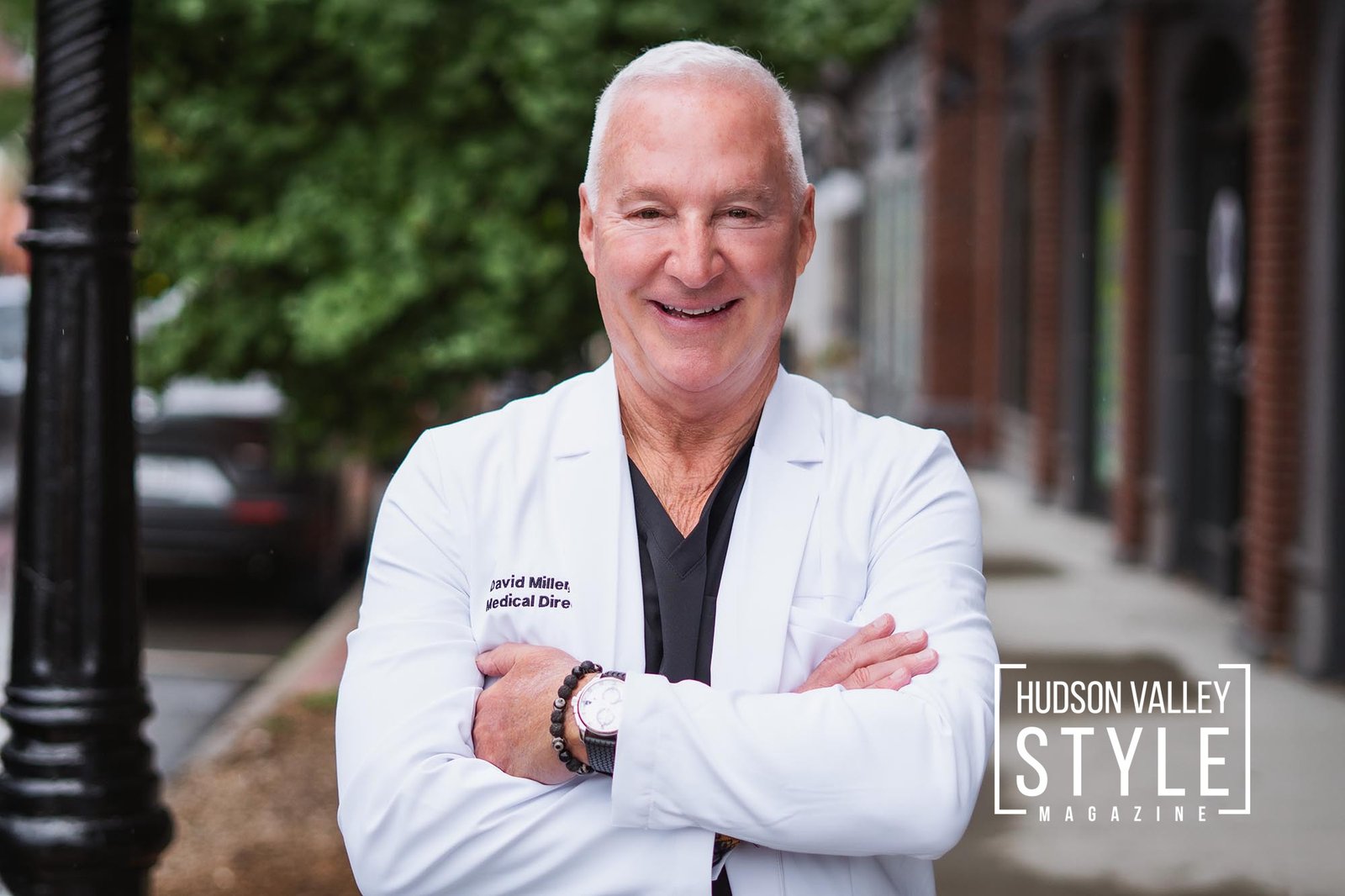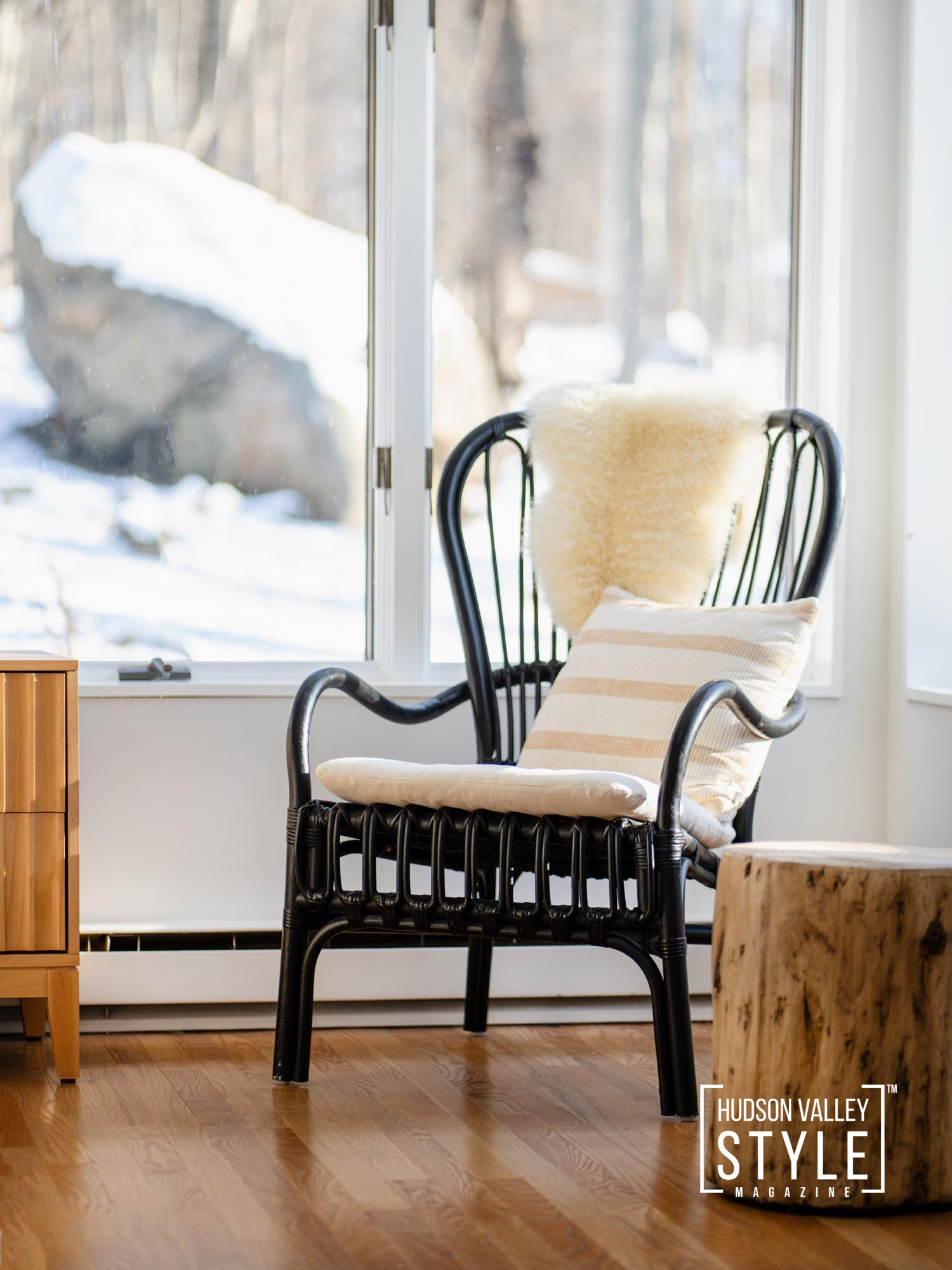My dear readers, you might be a little surprised to see me here in the pages of Hudson Valley Style Magazine. After all, I’ve spent my life in scrubs, not silk scarves, and my domain has always been the operating room. So why am I suddenly leading a conversation on something that seems, at first glance, unrelated? The answer is that HVSM has always been about connecting the dots in health, beauty, and emotional wellness. It’s the magazine that brings people from all over the world to the Hudson Valley to recharge, reset, and get inspired — just look at its Wellness Travel and Emotional Wellness features. So when it came time to explore a new horizon in mental health and wellness, one that I’ve been privileged to witness firsthand, this collaboration felt like a natural continuation of that mission.
Healing Together: Ketamine Therapy and a New Era in Mental Health – By David Miller, MD, Medical Director, Hudson Valley Ketamine Lounge – Mental Health – Emotional Wellness – Presented by Hudson Valley Ketamine Lounge
When I started practicing anesthesiology more than 35 years ago, I never imagined I’d be writing about mental health. My world was the operating room. My job was simple: keep people safe through surgery, manage pain, and bring them back intact. And one of the most reliable tools in my kit was ketamine. We anesthesiologists have trusted it for over 50 years — it was FDA-approved for anesthesia back in 1970 — and I’ve used it safely thousands of times.
What none of us expected was that this humble anesthetic had another act in store. At low doses, administered carefully, ketamine isn’t just a surgical tool. It’s become a lifeline for people living with PTSD, depression, chronic pain, and anxiety.

I’ll confess: after decades in medicine, I thought I’d seen most of what the field had to offer. But this development feels like a second wind in my career — a chance not only to keep people alive, but to help them rediscover life itself.
One of my patients, whose full story you’ll read later in this series — put it in a way only he could. With a grin he told me, “It was like my brain booked a spa day. Suddenly, all the knots were getting massaged out — and honestly, it felt fabulous.” He went on: “Rewiring my brain for positive thinking was as easy and exhilarating as learning to ride a bike. Except in my case, it was a rainbow-colored bike, and I was pedaling straight into a Pride parade.”
That’s the kind of description I treasure. Not clinical jargon, not dry reports. Just the lived experience of what happens when relief finally comes — honest, a little irreverent, and full of life.
And that’s the spirit I want for this series. We’re not here to drown you in medical acronyms or pile on more negativity. We’re here to explore how ketamine therapy is reshaping mental health care, right here in the Hudson Valley and across the tri-state area, with curiosity, compassion, and a little bit of joy.

You’ll hear not just from me, but from the talented team I’m privileged to work alongside at Hudson Valley Ketamine Lounge, with locations in Beacon, NY and Mahopac, NY. Each brings their own expertise and perspective on why the old system wasn’t enough, and how ketamine therapy is helping fill those gaps.
Dr. Elaine Suderio, DNP, FNP-BC, is a board-certified Family Nurse Practitioner and Doctor of Nursing Practice. With a deep background spanning primary care, urgent care, and mental health, Elaine brings a calm, evidence-based approach to even the most complex cases. She has a gift for making patients feel safe, heard, and empowered — and she’ll share how ketamine therapy fits into the broader picture of treatment-resistant depression, PTSD, anxiety, and chronic pain.

Casandra “Sandy” Way, FNP-BC, has over 25 years of experience in critical care, emergency medicine, and surgical services. She’s seen firsthand the limitations of traditional approaches to trauma and chronic illness. Today, she brings that same depth of knowledge into integrative care, with a focus on prevention, hormone and peptide therapy, and patient-centered healing. Sandy will talk about why ketamine therapy is an important part of the shift toward wellness and longevity.
Samantha Ortiz, RN, is often the steady, reassuring presence that patients see before, during, and after an infusion. With her strong background in patient-centered care and support, Samantha knows how to create an environment where patients feel truly seen and supported. She’ll offer insight into what ketamine therapy looks like “in action” — from the infusion chair to the first signs of relief — and why empathy and presence are just as critical as the medicine itself.
Together, this team represents more than just clinical expertise. They embody the compassion, innovation, and determination needed to guide patients into new territory — one where healing feels possible again.
Now, ketamine isn’t magic. It’s medicine. But the science is compelling — check out this research — and professional organizations like the American Society of Ketamine Physicians, Psychotherapists & Practitioners, of which we’re proud members, are ensuring that this therapy is delivered safely, ethically, and with patients’ dignity at the center.
So here’s what’s ahead:
-
PTSD and how ketamine can reset the brain’s alarm system
-
Chronic pain and how it can turn down the body’s volume
-
Depression, especially when standard medications stop working
-
Anxiety and mood disorders, and where ketamine fits in
-
Safety, side effects, and what to expect if you decide to try it
My hope is that reading this feels less like a lecture and more like a conversation with a friend who happens to know the science. Mental health conversations have been toxic for too long — heavy, stigmatizing, joyless. Let’s flip that script. Let’s talk about healing with honesty, humor, and yes, hope.
So buckle up, Hudson Valley. We’re breaking ground on ketamine therapy together — and I promise, it’s going to be both enlightening and unexpectedly fun.
— David Miller, MD, Medical Director, Hudson Valley Ketamine Lounge

P.S.: Hudson Valley, let’s heal together. We have important work to do — healing our veterans, our police officers, our first responders, our nurses, and the trauma care professionals who carry so much for the rest of us. If you or someone you love is living with PTSD, depression, anxiety, or chronic pain, don’t carry it in silence. Reach out to your healthcare providers and talk to them about Ketamine Therapy for Mental Health.
This is a call for our community to come together, to confront the weight of trauma, and to discover new pathways to healing — together.
Stay updated on every article in this series by subscribing to the Hudson Valley Style Magazine newsletter here: Subscribe Now. Learn more about Hudson Valley Ketamine Lounge at hvketamine.com. Follow Hudson Valley Ketamine Lounge on Instagram. And if you know someone who needs to hear this message, please share this article with them — healing is here, and hope is closer than you think.
Disclaimer: The views expressed in this article are those of David Miller, MD, Medical Director at Hudson Valley Ketamine Lounge. This content is intended for informational and educational purposes only and should not be taken as medical advice. Ketamine therapy may not be appropriate for everyone. Always consult with your own physician or qualified healthcare provider before starting or changing any treatment.
If you or someone you know is in crisis:
-
Call or text 988 to connect with the Suicide & Crisis Lifeline (24/7, free, confidential).
-
In Dutchess County, call the HELPLINE at (845) 485-9700.
-
In Ulster County, call Mobile Mental Health at (844) 277-4820.
-
In Orange County, call the Crisis Call Center at (800) 832-1200.
-
In Westchester County, call Crisis Prevention and Response Team (CPRT) at (914) 925-5959.
-
If you are experiencing a medical or psychiatric emergency, dial 911 immediately.





